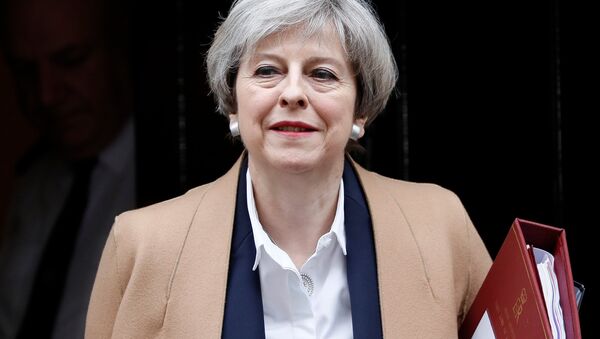The latest report from the House of Commons Exiting the European Union Committee says the government has not made the case for how Britain would far in the event of no deal being reached.
"We note the Foreign Affairs Committee's recent conclusion that a 'no deal' scenario 'represents a very destructive outcome leading to mutually assured damage for the EU and the UK.' We share that view. It is, therefore, very important that both the UK and the EU avoid reaching the end of the two-year negotiating period without an agreement," the report said.
Our chair @HilaryBennMP is urging Govt to assess the implications of leaving the EU without a deal. Read our report: https://t.co/uaNpAdo0oA pic.twitter.com/lOpp1OMi2g
— Exiting the EU Cttee (@CommonsEUexit) April 4, 2017
"The Government has talked about walking away from a bad deal, but has not yet explained what terms would be demonstrably worse for the UK than ‘no deal'. The Government should therefore conduct a thorough assessment of the economic, legal and other implications of leaving the EU at the end of the Article 50 period with 'no deal' in place.
"This should be published. The public and Parliament have a right to the maximum possible information about the impact of the different future trading options being considered, including the possibility of no [free trade agreement] being reached," the report said.
Tight Deadline
Theresa May announced that Britain would enter negotiations over Brexit, wanting parallel talks on the "divorce" element and a new free trade agreement. However, EU Council President Donald Tusk — and other member states — have made clear that no trade talks can begin until the "divorce" arrangements are agreed.
Since the EU is demanding an exit fee of up to US$64 billion — to cover Britain's contribution to commitments made while still a member — the "divorce" element of the talks could put any new trade agreement at risk, as the two-year deadline envisaged under Article 50 of the Treaty of Lisbon is already extremely tight.
EU citizens will not pay the bill for the British. Agreement can be reached if the UK recognises its financial liabilities @ManfredWeber
— EPP Group (@EPPGroup) 4 April 2017
"The Government is right to try and negotiate both the divorce settlement and a new trading relationship in tandem, but it should also be prepared for the worst case — i.e. that a new trade agreement is not reached or ratified by the day we leave — because the timescale allowed by Article 50 is particularly tight," said committee chair Hilary Benn MP.
"The Government should conduct a thorough assessment of the economic, legal and other implications of leaving the EU without a deal in place. The public and Parliament have a right to the maximum possible information about the impact of the different future trading options being considered.
"Without an economic impact assessment of 'no deal' and without evidence that steps are being taken to mitigate the damaging effect of such an outcome, the Government's assertion that 'no deal is better than a bad deal' is unsubstantiated," Benn added.



